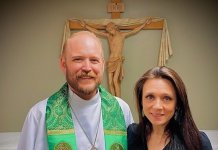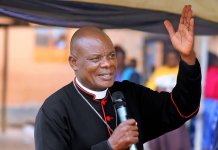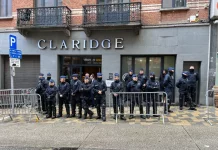WASHINGTON, D.C.—Today, in a 7-2 decision, the Justices of the Supreme Court of the United States preserved the nearly 100-year old Bladensburg WWI Veterans Memorial, along with memorials like it bearing religious symbols across the country. Most importantly, in The American Legion v. American Humanist Association, the Justices reaffirmed that the First Amendment allows people to use religious symbols and images in public. First Liberty Institute and the international law firm Jones Day represent The American Legion.
A copy of the opinion can be read here.
Former Ambassador to the European Union, C. Boyden Gray and Adam Gustafson, of Boyden Gray & Associates, First Liberty network attorneys, are the lead appellate counsel for the case.
“This is a landmark victory for religious freedom. The days of illegitimately weaponizing the Establishment Clause and attacking religious symbols in public are over,” said Kelly Shackelford, President, CEO, and Chief Counsel to First Liberty. “Our Founders would have been appalled at this attempt to make the government hostile to our religious heritage, history, and symbols. The attempted perversion of our Constitution is now over, and every American now has more freedom than they have had in decades, with a government no longer hostile to people or expressions of faith.”
Michael Carvin, lead counsel for The American Legion, partner at Jones Day and First Liberty network attorney, said, “We are grateful for this historic victory for the First Amendment. This decision simply affirms the historical understanding of the First Amendment that allows government to acknowledge the value and importance of religion.”
Brett Reistad, National Commander of The American Legion, said, “The American Legion is proud to have defended the Bladensburg WWI Veterans Memorial. Since our founding, the Legion has been committed to defending the memorials of our fallen comrades because we know the price of freedom. To my fellow veterans: mission accomplished!”
“The Supreme Court’s decision to protect the Peace Cross sends a clear message to all Americans: religious symbols and religious activity in public contribute to the diversity of this nation and must be protected,” said Christopher DiPompeo, co-counsel with First Liberty and partner at Jones Day.
Named for the 1971 case of Lemon v. Kurtzman, the “Lemon test” asks a number of subjective questions that activists have routinely used to decry “separation of church and state” while demanding anything religious be hidden from public view—even if that means tearing down memorials and monuments that have stood for a century. In its place, the Court returned to a commonsense reading of the Establishment Clause that guards against the establishment of an official religion, while permitting the public acknowledgment of religion in public.










